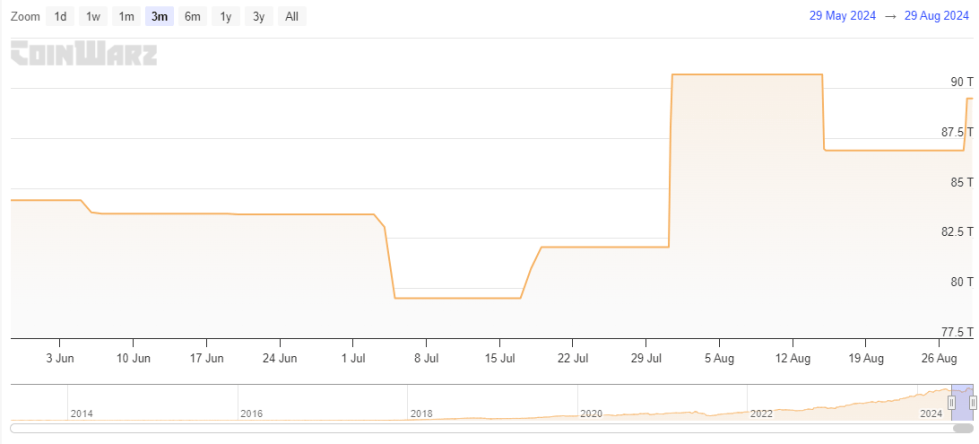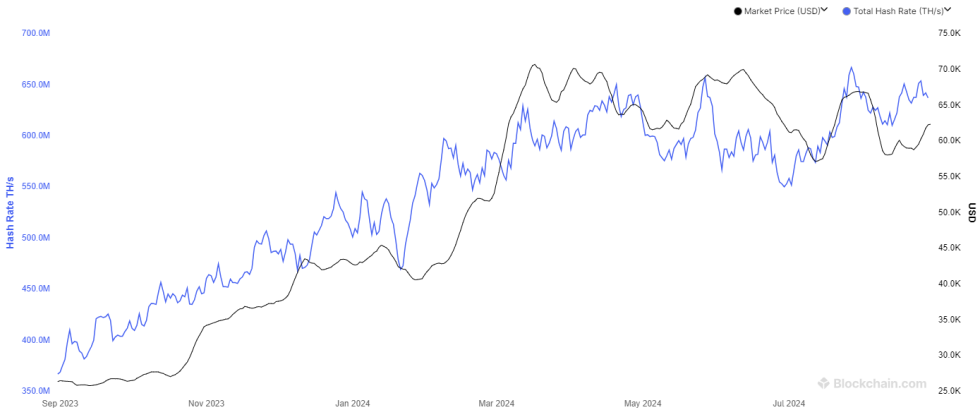ARTICLE AD
On-chain data shows the Bitcoin mining difficulty has seen an increase in the latest adjustment, a consequence of the hashrate’s recovery.
Bitcoin Mining Difficulty Has Seen A Positive 3% Adjustment Recently
The “mining difficulty” refers to a feature built into the Bitcoin blockchain that controls how hard the miners would find it to mine on the Bitcoin network right now. The difficulty goes through periodic adjustments about every two weeks, which are entirely controlled by code and thus, are completely automatic.
When the network makes a positive difficulty adjustment, it means miners would find it harder to mine on the blockchain than in the past two weeks and as such, would have their pace slowed down.
On the other hand, BTC going through a negative adjustment implies miners would be able to mine through blocks on the network at a faster speed than in the last couple of weeks.
Now, here is a chart that shows how the last few adjustments changed Bitcoin’s difficulty:

As is visible in the above graph, the latest Bitcoin network adjustment has led to an increase in difficulty for the miners. More specifically, the metric has risen by 3% compared to the value at the end of the last adjustment.
To understand the reason behind this change (or any previous adjustment, for that matter), the goal behind the mining difficulty’s existence must be understood first.
A feature of the Bitcoin blockchain is that the cryptocurrency’s supply goes up whenever miners go through blocks and receive block subsidy as compensation for them.
Miners use computing power to solve puzzles that grant them the opportunity to add the next block to the chain, so when they increase their computing power, they become faster at their task, and hence, can produce blocks at a faster rate.
But as the production rate of the asset itself is tied to this task of the miners, leaving miners’ growth unchecked can lead to an explosion in the asset’s supply, which would adversely affect its price, due to how supply-demand dynamics tend to work out.
As a measure of keeping miners’ block production rate at a constant value, Satoshi, Bitcoin’s creator, decided to program in the concept of difficulty. Because of this feature, whenever miners increase their power, the network hits back at them with an increase of difficulty in the next adjustment.
The total computing power of the miners is called the “hashrate.” Below is a chart that shows the trend in the 7-day average of this metric over the past year.

As would be expected given the difficulty’s positive adjustment, the Bitcoin mining hashrate has been rising recently. Miners had earlier downsized their facilities, which had led to the metric plunging, but it appears that they have gradually started adding back mining rigs to their farms.
BTC Price
Bitcoin had plunged under the $60,000 mark yesterday, but the coin appears to have made recovery back above the level today.
Featured image from Dall-E, Blockchain.com, CoinWarz.com, chart from TradingView.com

 2 months ago
31
2 months ago
31 

